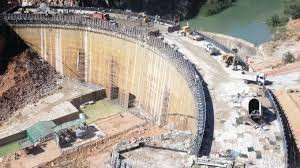
PRESIDENT Emmerson Mnangagwa’s recent unveiling of a US$500 000 cash payout to war veterans, under the guise of the War Veterans Empowerment Fund, has ignited widespread debate and scepticism.
While the initiative is framed as a noble effort to uplift those who contributed to Zimbabwe’s liberation struggle, it raises important questions about the nature of economic empowerment and the sincerity of government programmes supposedly meant to improve people’s lives.
Is this truly empowerment or is it political patronage repackaged as generosity?
This is not the first time the Mnangagwa administration has launched a targeted “empowerment” programme for specific groups.
We have witnessed numerous such schemes under his presidency, including the hairdressers’ fund under “Hairdressers for ED,” the Presidential Borehole Scheme, the housing stands for civil servants and the agricultural input handouts under the Pfumvudza programme.
Added to these are the Presidential War Veterans Fund, the Presidential Youth Empowerment Revolving Fund and the Presidential Youth Mining Equipment Scheme — all portrayed as efforts to uplift citizens but often lacking transparency, accountability and measurable impact.
All of these are branded as empowerment efforts, yet most are designed as loans that beneficiaries are expected to repay.
If empowerment must come in the form of a government handout, often wrapped in political rhetoric and debt, then we must question whether our economic system is functional at all.
- ‘Zimbos dreading 2023 elections’
- No reason to panic over monkeypox: Experts
- Unresolved land tenure dispute stifles Tongaat Hulett project
- Border Timbers targets European markets
Keep Reading
Real economic empowerment does not require a politician’s blessing or a State-run programme.
It is achieved when every citizen, regardless of profession, is able to earn a decent income from honest work, access financial services and live a dignified life without begging for State intervention.
In a truly working economy, teachers, nurses, drivers, builders, and even vendors do not need handouts or so-called empowerment loans.
Their wages or income from their professions are enough to cater for their basic needs and still allow them to live relatively comfortable lives.
This is not just a utopian vision.
It is exactly what many Zimbabweans experienced in the 1980s and 1990s.
Our parents, who worked as mere clerks, drivers or civil servants, managed to buy or build houses, including in low-density suburbs, bought decent cars and sent their children to good schools.
All of this was possible not because of some empowerment scheme, but because the economy was functioning.
Their salaries were sufficient and financial institutions like building societies were accessible and responsive.
Today, the very existence of a multitude of so-called empowerment programmes is a loud admission that our economy is broken.
Why would a person need State assistance to start a small business or to own a home if the economy supports entrepreneurship and home ownership?
Why are boreholes being drilled by the State and branded as presidential schemes if local councils and residents had the means to develop and maintain their own infrastructure?
In a healthy economic environment, citizens access loans from banks, backed by the collateral they have amassed through years of productive work.
The very fact that people can no longer do this shows just how impoverished Zimbabweans have become.
It is deeply troubling that the very government responsible for the collapse of the economy is now exploiting that collapse to present itself as a saviour.
The Mnangagwa administration is using people’s poverty as a political weapon.
It offers carefully packaged assistance to targeted groups not out of genuine concern for their welfare, but to buy their loyalty.
The timing of these empowerment initiatives, often rolled out ahead of elections or during periods of political tension, reveals their true motive.
These are not empowerment strategies; they are political tools designed to keep a poor population dependent and submissive.
The war veterans, youth, women, farmers and other groups being targeted are being used as pawns in a larger political game.
Their allegiance is secured through material dependency, not shared ideology or genuine empowerment.
In fact, this approach robs people of their dignity.
Instead of being supported to stand on their own, they are turned into permanent dependents of a regime that has, ironically, impoverished them in the first place.
They are made to feel grateful for what is essentially compensation for the destruction of opportunities that should have been naturally available to them in a functioning economy. This is not empowerment — it is control.
True empowerment lies in creating an environment where the economy thrives, jobs are plentiful, infrastructure is reliable, and financial institutions are robust and inclusive.
It means enabling people to pursue their aspirations through hard work, innovation and merit — not through handouts tied to political loyalty.
Instead of investing in sustainable economic reforms, the Mnangagwa administration continues to prioritise optics over substance.
We see boreholes being drilled with much fanfare while water infrastructure in cities and towns collapses.
We see young people being handed mining equipment while access to productive claims remains a preserve for the politically connected.
We see token loans being paraded as empowerment, while banks remain inaccessible to the majority due to lack of collateral and a collapsed credit system.
Empowerment is not a photo opportunity; it is a long-term process of structural transformation that puts power — and responsibility — in the hands of the people, not the politicians.
It is about economic justice, not political expediency.
If the government truly cared about empowerment, it should focus on reviving industry, restoring agricultural productivity, ensuring policy consistency, clamping down on corruption and strengthening institutions.
It would stop seeing citizens as dependents and start seeing them as partners in national development.
Until that happens, these so-called empowerment initiatives will remain nothing more than a thin veil covering a deeply flawed and cynical political strategy — one that continues to trap Zimbabweans in a cycle of poverty and dependence, rather than liberating them into financial independence and dignity.
Zimbabweans deserve real economic empowerment — not politically-motivated handouts that offer temporary relief and perpetuate permanent poverty.
- Tendai Ruben Mbofana is a social justice advocate and writer. Please feel free to WhatsApp or Call: +263715667700 or email: [email protected], or visit website: https://mbofanatendairuben.news.blog/. He writes here in his personal capacity.










